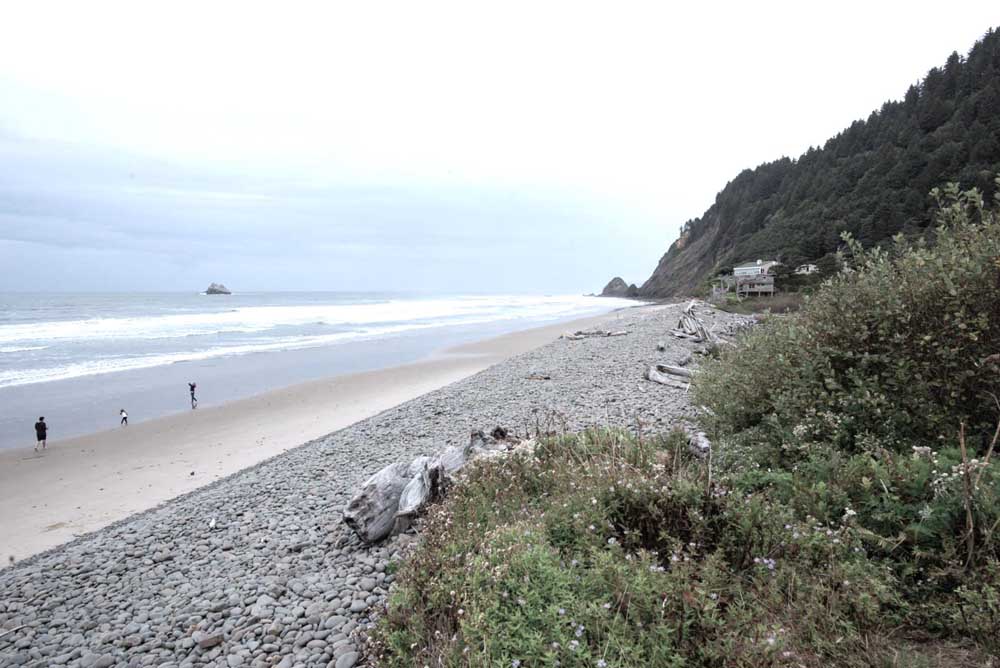Falcon Cove Beach Water District ends moratorium
Published 2:07 pm Wednesday, June 10, 2020

- A moratorium is over at the Falcon Cove Beach Water District.
The Falcon Cove Beach Water District board voted unanimously June 6 to let a water moratorium expire.
The vote came two weeks after Charles Dice, the water district’s system operator, announced that a water emergency would be extended for another six months while the district waited for a water rights permit from the state to begin integrating a well into the water supply.
Property owners challenged Dice at two meetings in May after confirming with the Oregon Water Resources Department that no permit is needed because the water district qualifies for exempt use.
Dice told property owners Saturday that the water district and its engineering consultant, Curran-McLeod Inc., “have managed to corral” the Water Resources Department and other government agencies and agree that the district does in fact qualify for exempt use.
The water district declared an emergency in December 2018 after reporting that water production had been at record low levels for the past several years during late summer months.
The board attributed the shortage to a spike in vacation rentals. The board also learned that more homes could be built in Cove Beach and Falcon Cove, an unincorporated area on the border of Clatsop and Tillamook counties, than previously estimated.
“So those three things coupled together informed the board that we really had a serious problem in terms of being able to supply water dependably and reliably to not only the existing number of homeowners, but certainly not to what was starting to appear on the horizon as future needs,” Dice said.
He said the board could not in “good conscience” give water availability letters to property owners looking to obtain building permits from Clatsop County.
“And the only legal solution to say ‘no’ was to declare a moratorium. So that is why it was an emergency,” Dice said.
The board’s actions drew criticism about transparency and possible ulterior motives to limit development, since property owners were left to find other sources of water to obtain building permits.
Guido Paparoni, a geologist, and his wife, Margaret Rozendaal, a climate scientist, are property owners in Cove Beach. They spent months analyzing data obtained through public records requests and came to the conclusion that there is no drought or water shortage in the late summer months.
David Livermore, a hydrogeologist and longtime homeowner in Cove Beach, came to the same conclusions. They shared their findings with the water district and the county last year.
Dice walked back claims of a water shortage in December after he said the water district discovered an obstruction in its well that led to false data. But as the moratorium continued and the board moved toward another six-month extension, more property owners became involved and there were warning signs of legal action.
Beth Radich, the board’s president, commended Dice for driving the process. She said the goal is to provide people who live in the community access to safe, secure, dependable and affordable water.
“That’s a critical and essential need for residents. It’s also incredibly important for people who have vacation homes here or have lots to sell. And we consider all of that,” she said.
“We get responsibility for the entire community. We carefully consider the impact to everyone. And we want you to know that the decision to enact the moratorium was predicated on data and experience. And we had a lot of communication and meetings with the community. We engaged with our agency partners, and we got great technical advice and guidance from many other organizations.”
County Commissioner Lianne Thompson cautioned the board during a meeting in May to listen to property owners after saying the water district was at risk for lawsuits and ethics complaints. Thompson expressed the same enthusiasm June 6 about the board’s decision to lift the moratorium as many other property owners and homeowners.
“Well done. And I say well done on everyone’s part because, yes, the water board members have worked on this. Other community members have worked on this, as well,” she said.
“And it’s important that we honor and that we welcome the way you welcomed us today to participate in this process. I think there’s been a lot of good work that’s been done. I think there has also been an unfortunate strain of, I would say defensiveness and hostility if anyone had a question or a disagreement or raised concerns. Those weren’t necessarily welcome. I would again plead with the members of the water board to welcome those differences of opinion.”
Paparoni, whose research and reports challenged the water district’s data, said in an email that he believes there is an opportunity for state legislators to review how public districts are regulated so that a similar situation does not happen again.
“That, however, is in the hands of our public officials, and I hope they will take action in the near future,” he said.




